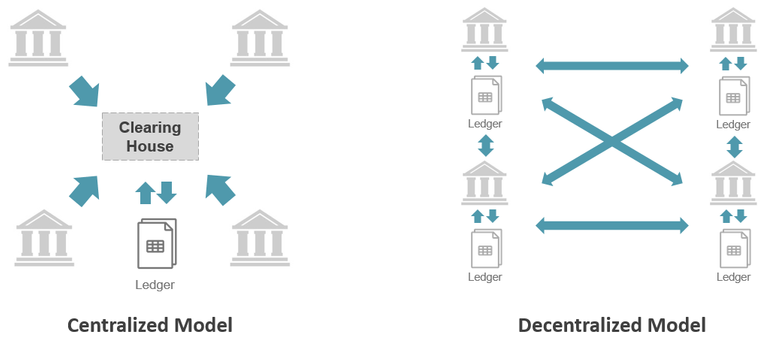
What is a centralized ledger? Well, the basic explanation is that it's a collection of transactions that are managed by a solitary player. Think of your bank statement as a centralized ledger. The bank controls it and its contents, that is, which transactions get posted and the credits and debits to the ledger. [This means that the centralized ledger holder controls the contents of the ledger.]With a centralized ledger, you can't control when the ledger holder, the bank, decides to modify the ledger. The ledger holder can take money because you have an implicit or explicit understanding.
That is, your agreement with your bank that allows them to levy charges like fees and interest. So, here's the problem. What if the ledger holder, your bank in this case, isn't acting honorably? Well, the quick answer is that you have no control. The consent is out of your hands because you signed a client agreement with the bank when you opened the account. And arbitrary decisions, whether your consent was implied or explicit, are therefore possible. And this presents a serious risk if the ledger holder has malicious intent. For example, if the ledger holder goes out of business, you have little or no recourse. Good luck getting your money.
So, is the decentralized, basically the distributed ledger, the solution? With decentralized ledgers no single party has control, but roles can be assigned. There's no central location for the ledger and that's the peer to peer methodology behind Blockchain. With centralized ledgers, ledger updating is universal because the database is distributed out to the nodes. So, every single node has its own copy and all copies are in agreement. Bitcoin is the perfect example of the decentralized ledger. There are several compelling benefits to a decentralized ledger. It's open and transparent. Every copy contains every transaction ever recorded. It maintains secure data with practically zero risk of tampering. The data remains intact and free of corruption because there are multiple copies held in multiple nodes. And the decentralized ledger can be distributed just to trusted parties. On the other hand, there are a few drawbacks to the decentralized ledger. The time it takes to update the ledger can be problematic. It's not necessarily in real-time.
And for transactions that require real-time updating, the decentralized ledger may not be the solution. Because there are environments where real-time transactions drive prices, like in stock markets. Bitcoin updates approximately every 10 minutes. And that works for Bitcoin, but it may not work for other scenarios. And if the decentralized ledger is open to the public, the trust relationship has to be implied. But what if you have some badly-behaved players in the public network? What about people who are there because they want to cause mayhem and line their own pockets? So, the question has to be asked, is the decentralized ledger prone to attack? The short answer is yes, because everything that represents an opportunity for illegal gain is going to be a target for malicious attackers. But being prone to attack doesn't mean being susceptible to attack. And that's where the safety and security part come in with decentralized ledgers like Blockchain. It may be an attractive target, but the nature of decentralization means that it will likely remain secure.
Photo Credit: (Source: Financial Times)
